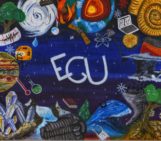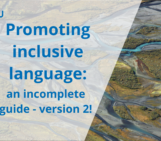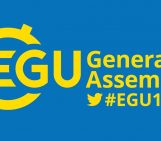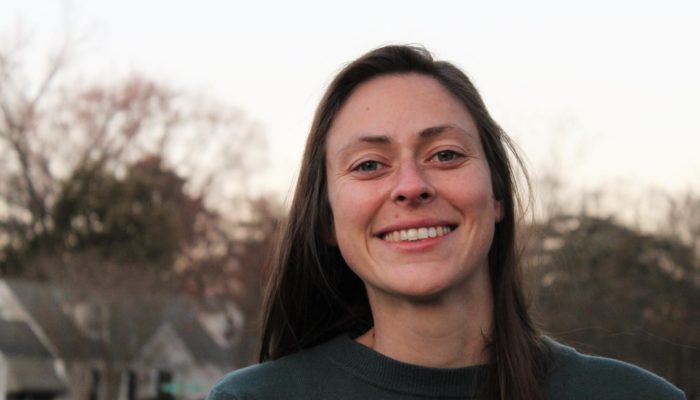
GeoTalk interviews usually feature the work of early career researchers, but this month we deviate from this format to speak with Olivia Trani, who has served as EGU’s Communications Officer for the past couple of years. In this role Olivia has skillfully managed the Union’s social media presence and the EGU blogs. She has also served as the point of contact for EGU’s early career scientists.
Olivia is returning to her native country, the U.S., but before she leaves we’ve asked her to reflect on her time with the EGU.
You have a master’s degree in science journalism and completed two internships, including one at AGU, before joining our office. What inspired you to pursue a career in science communication and outreach?
When I was young, an accomplished day involved mud-stained knees, twig-filled hair, and a story for the dinner table. I dedicated so much of my childhood to exploring the outdoors; I’d often spend my weekends climbing magnolia trees or catching crawdads in the neighborhood creek. I was also fortunate to have very engaging high school and college biology teachers who showed me that my relationship with nature could be enriched by a scientific understanding of them.
As an undergraduate student I became involved with a few biology research labs, but I found I gravitated towards talking about the big picture of my projects rather than dwelling on minute details of the experiments. One of my advisers encouraged me to look into science communication programmes, and soon after I started working towards my master’s degree in science journalism. Now I’m lucky to work full-time as a professional science communicator!
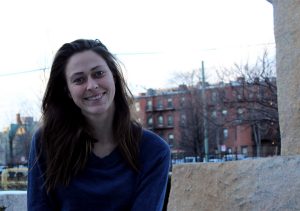
Olivia Trani at Boston University, where she completed her master’s in science journalism.
Why did you decide to join the EGU office?
I was interning at the American Geophysical Union (AGU) when I first found out that EGU was hiring a new communications officer. Coincidentally, the position was exactly what I had been looking for.
At the time, I was living in Washington D.C., chasing internships that typically only lasted twelve weeks. I knew I wanted a position that was more long-term. At AGU I had a wonderful time talking to geoscientists and writing about the latest discoveries in the Earth, planetary and space sciences, so I liked the fact that working with EGU meant I could continue to learn about this diverse area of science. While researching the organisation and interviewing for the job, it also became clear that EGU’s staff members and volunteers are passionate about their work, and I was excited by the idea of joining this community.
The number of people following EGU’s Twitter channel has grown by 32% while you’ve been overseeing it. What have you done to increase EGU’s online engagement?
Not only are we active on Twitter, but also on Facebook, Instagram, LinkedIn and YouTube! EGU’s social media channels are a source of news and information about the Earth, planetary and space sciences. We also use these channels to raise awareness about the latest geoscientific opportunities for both scientists and the public.
We pride ourselves as being a source of geoscience information, and we’ve been working on how we can engage with our audience more. Over the years we’ve been experimenting with making the pages more interactive with polls, quizzes and graphics, as well as fostering discussions on topics relevant to the geoscience community.
Another goal of ours is to use social media (and the blogs) to highlight the members of our community – to give a ‘face’ to the Union so to speak! For example, on Instagram we’ve been implementing ‘take-overs’ in which members of the EGU community host the account for a few days, giving a snapshot into their lives as researchers or science professionals. Through these take-overs we aim to raise awareness of our amazing and dedicated members and showcase the many ways people can become involved with the Union.
What opportunities does EGU provide for early career scientists (ECS), and what ECS activities have you helped develop?
A lot of my time at EGU has been spent on strengthening the early career scientist programmes that are already in place; these include the ECS Forum, the Networking & Careers Reception, the Mentoring Programme, and the Networking & ECS Zone at the General Assembly. I’ve been working on making these resources more accessible, useful and engaging to the ECS community.
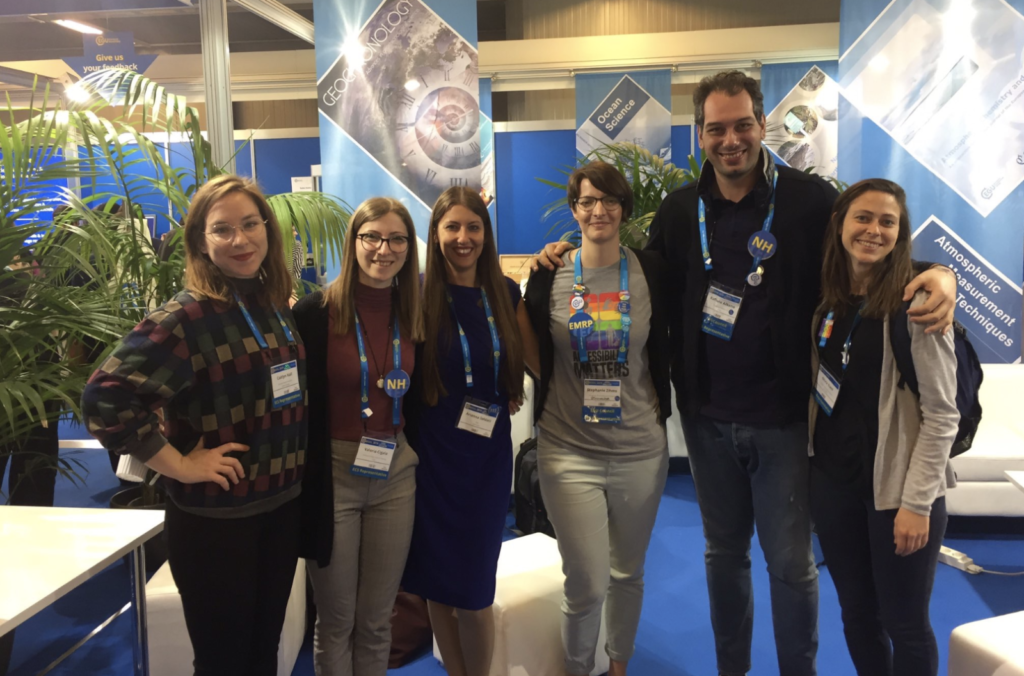
Right to left: Caitlyn Hall, Valeria Cigala, Arianna Soldati, Stephanie Zihms, Raffaele Albano, and Olivia Trani at the EGU General Assembly 2019.
I’ve also been involved with helping the ECS representatives with the many activities they do year-round, but I’m the most proud of contributing to their long-term EGU ECS vision and strategy, focusing on careers and funding, work-life balance, connectivity, the ECS role in the General Assembly programme, and the ECS role within the EGU. An ECS representative’s term is quite short, so defining what we hope to accomplish in five years’ time is a vital step towards giving the EGU early career scientist community the support they need.
What’s the one thing that you wish more people knew about the EGU?
I wish more people knew that we are organised by a dedicated team of volunteers and staff members. The number of staff members in the EGU office is quite small compared to other scientific organisations, and I’m amazed by how much we accomplish with a small team.
I think more people should also be aware of how much time and effort our volunteer EGU representatives dedicate to the Union. EGU is a bottom-up, member-led community, and the Union flourishes thanks to the hard work of EGU’s council, committees, division officers, ECS representatives, bloggers, social media admins, and many more.
Finally, I wish people knew more about the many opportunities for outreach that EGU offers! We have lots of initiatives and resources for those interested in science policy, science communication, science art, blogging, and other kinds of public engagement. If you have ever been interested in promoting science to a broader audience, you can go to our website to learn more about doing science outreach and getting involved with EGU’s activities!
Interview by Terri Cook, EGU Head of Media, Communications and Outreach

